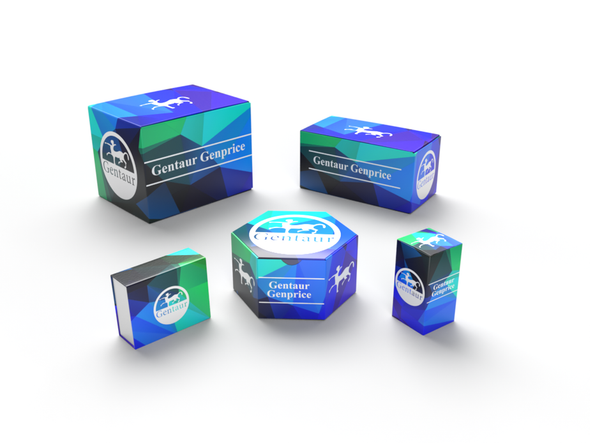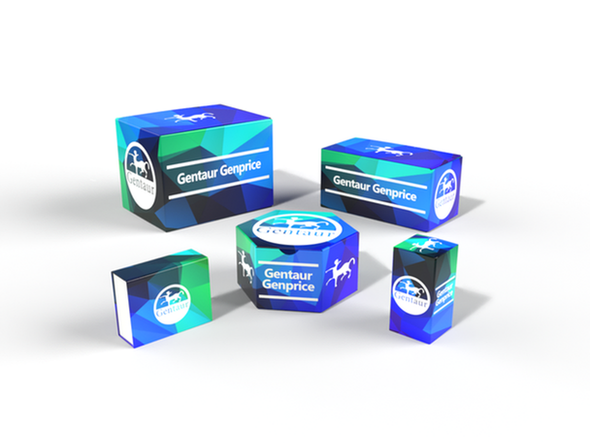Description
DTX4 Antibody | 8057 | Gentaur UK, US & Europe Distribution
Host: Rabbit
Reactivity: Human
Homology: N/A
Immunogen: DTX4 antibody was raised against a 19 amino acid peptide near the center of human DTX4.
The immunogen is located within amino acids 230 - 280 of DTX4.
Research Area: Neuroscience, Innate Immunity
Tested Application: E, WB, IHC-P, IF
Application: DTX4 antibody can be used for detection of DTX4 by Western blot at 1 - 2 μg/ml. Antibody can also be used for immunohistochemistry starting at 5 μg/mL. For immunofluorescence start at 20 μg/mL.
Antibody validated: Western Blot in human samples; Immunohistochemistry in human samples and Immunofluorescence in human samples. All other applications and species not yet tested.
Specificiy: DTX4 antibody is human and mouse reactive. At least two isoforms of DTX4 are known to exist; this antibody will detect both isoforms. DTX4 antibody is predicted to not cross-react with other DTX protein family members.
Positive Control 1: Cat. No. 1201 - HeLa Cell Lysate
Positive Control 2: Cat. No. 10-901 - Human Spleen Tissue Slide
Positive Control 3: N/A
Positive Control 4: N/A
Positive Control 5: N/A
Positive Control 6: N/A
Molecular Weight: Predicted: 68 kDa
Observed: 68 kDa
Validation: N/A
Isoform: N/A
Purification: DTX4 antibody is affinity chromatography purified via peptide column.
Clonality: Polyclonal
Clone: N/A
Isotype: IgG
Conjugate: Unconjugated
Physical State: Liquid
Buffer: DTX4 antibody is supplied in PBS containing 0.02% sodium azide.
Concentration: 1 mg/mL
Storage Condition: DTX4 antibody can be stored at 4˚C for three months and -20˚C, stable for up to one year.
Alternate Name: Deltex 4 E3 ubiquitin ligase, RNF155
User Note: Optimal dilutions for each application to be determined by the researcher.
BACKGROUND: The Deltex 4 E3 ubiquitin ligase (DTX4) is a member of a protein family that is involved in Notch signaling and neurogenesis (1) . Recent studies have shown that DTX4 is also associated with the innate immune response (2) . Following the activation of type I interferon signaling, the Nod-like receptor protein 4 (NLRP4) recruits DTX4 for Lys48-linked polyubiquitination and degradation of the kinase TBK1 (NAK) , thereby maintaining immune homeostasis during antiviral innate immunity (2) .










